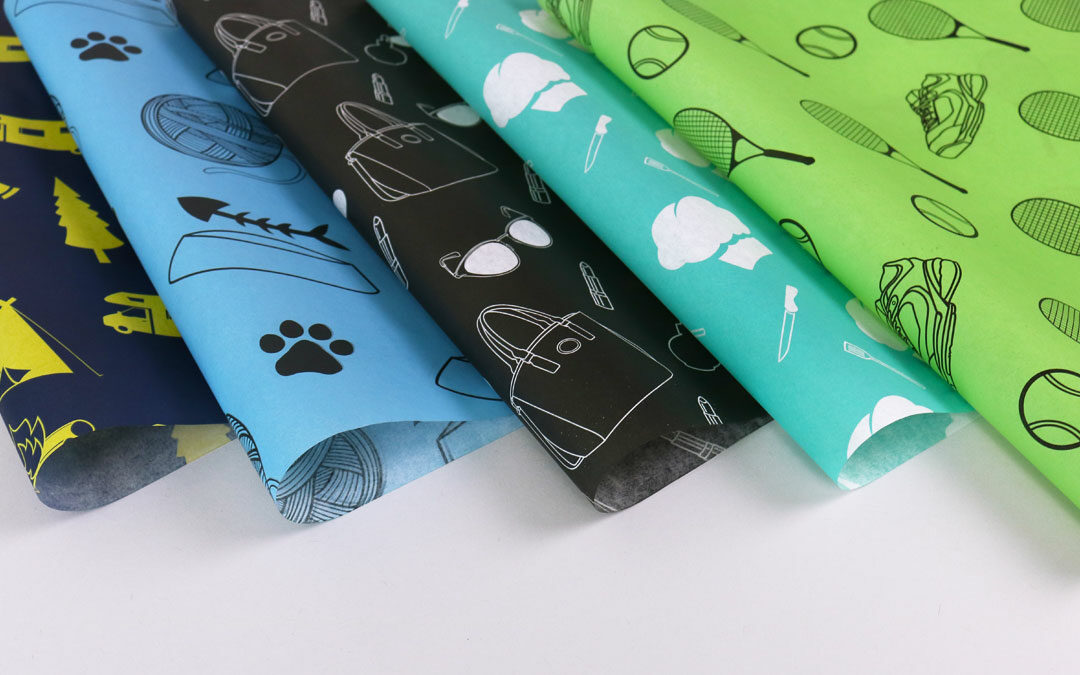[[data.name.value]]
[[metadata.defaultData.name]]
[[data.title.value]],
[[metadata.defaultData.title]],
[[data.company.value]]
[[metadata.defaultData.company]]

Which Environmental Alternatives are Available for Custom Tissue
Businesses are looking for greener custom tissue products as sustainability becomes a worldwide priority. The tissue sector is changing to satisfy environmental needs, from environmentally friendly manufacturing to recycling alternatives. Alternatives to custom tissue for packaging, marketing, and events save waste and help conservation. This change indicates a greater awareness of product environmental effect and offers eco-friendly options.

Natural Materials for the Production of Tissue
The use of eco-friendly materials is one of the biggest environmental changes in the manufacturing of custom tissue. The use of virgin wood pulp to make traditional tissues has an adverse effect on forests and biodiversity. New alternatives, on the other hand, drastically reduce environmental expenses by using bamboo, recycled paper, or agricultural waste. These materials save natural resources in addition to being biodegradable. Businesses may show their environmental commitment and lessen their ecological impact by using sustainable materials.
Renewable Energy's Place in Manufacturing
The development of sustainable tissue solutions heavily relies on renewable energy. A lot of tissue producers are using hydroelectric, solar, and wind energy to run their operations. As a result, there is less dependence on fossil fuels, which are the main cause of carbon emissions. Customers concerned about climate change are drawn to bespoke tissue produced using renewable energy sources. These businesses contribute to the industry's good transformation by endorsing renewable energy.
Water-Saving Measures in Tissue Manufacturing
Another aspect of the environment which tissue manufacturers are improving is water consumption. The production of tissue requires a lot of water, thus conserving water may have a big positive impact on the environment. Tissue industry innovations recycle water and improve filtration, saving this resource. The manufacturing process is now cleaner since eco-friendly tissue products need less water. This deliberate action lessens the effect of the industry on nearby water sources.
Options for Biodegradable and Compostable Tissue
Green customers are demanding biodegradable and compostable tissue goods. Biodegradable tissues decompose spontaneously, lowering pollution and trash in landfills. Furthermore, when they break down, compostable tissues provide nutrients to the earth. For companies wishing to provide eco-friendly custom tissue that complements their green brand image, these choices are perfect. Within the tissue sector, biodegradable and compostable tissues demonstrate the potential of a circular economy.
Recycling and Appropriate Methods of Disposal
The sustainability of custom tissue products is aided by recycling initiatives and ethical disposal methods. To guarantee proper disposal, certain tissue firms now provide recycling guidelines or take-back programs. These businesses encourage consumers to make sustainable decisions and lessen the load on landfills by encouraging recycling. Proper disposal choices reinforce the message of environmental care by making it simpler for customers to decrease trash.
Conclusion
In order to satisfy the ideals of today's eco-conscious customers, the custom tissue sector is adopting eco-friendly choices. Sustainable tissue choices lessen environmental effect from eco-friendly materials to responsible disposal. The market for green tissue products is expected to expand as companies look for more environmentally friendly options. Adopting these choices strengthens a business's commitment to sustainability while also helping the environment.
Read more
Read less
[[ metadata.translations.contactme ]]